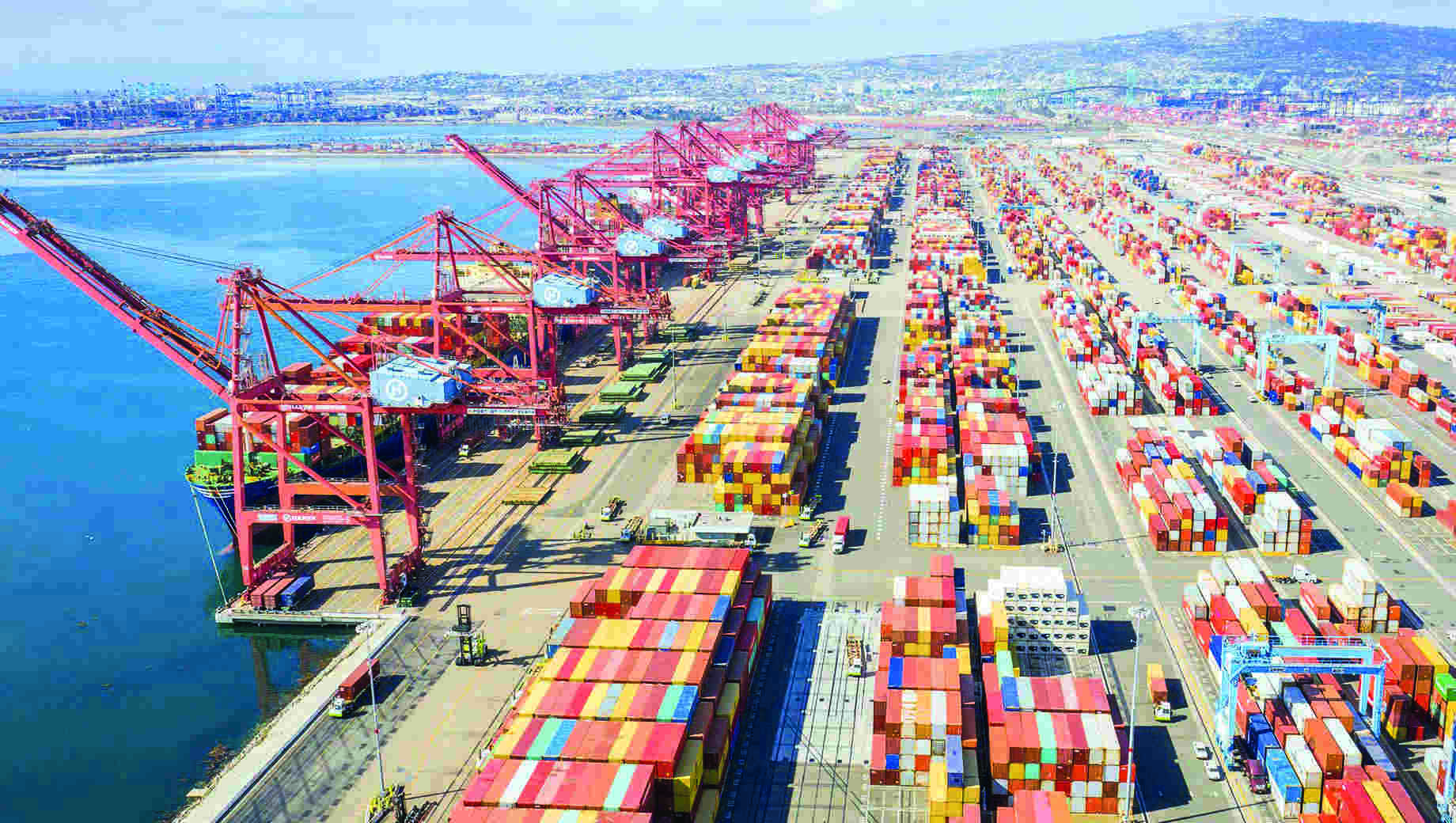African Union is India's 4th largest trading partner

Johannesburg: The African Union is India's fourth largest trading partner after the United States, China and the United Arab Emirates, propped up by diversification in Indian exports to the continent, a senior State Bank of India official has said at a seminar here.
With a share of 8.52 per cent in global trade, India's total trade with Africa in 2019-20 was valued at $68.33 billion.
India has a negative trade balance with Africa, implying a dominance of imports over exports. In 2019-20, India's trade deficit with Africa was valued at $9.1 billion, which accounted for nearly 6 per cent of India's total trade deficit in the case of trade in goods, Syam Prasad, CEO of State Bank of India in South Africa said on Wednesday.
In terms of bilateral trade, the African Union is one of India's largest trading partners after the US, China, and the UAE, he explained.
India's trade with Africa has been diversified from exporting mainly textile yarns to petroleum products, pharmaceutical products, chemicals and manufactured products, he asserted.
At the same time, India's import basket, though dominated by primary products and natural resources, is still diverse given the wide natural resource base in Africa, he said.
Within the African Union, India's top trading partner is Nigeria (20.91 per cent). Ten countries account for nearly 60 per cent of India's total trade with Africa.
Of them, India enjoys a positive trade balance with Egypt and Mozambique, while having a deficit with the rest of the countries.
Nearly 61 per cent of India's imports from the African Union comprise fuels, mainly crude from Nigeria, Angola and Algeria.
This is followed by precious stones and glass (20 per cent) from Ghana, South Africa and Botswana.
Other imports include vegetables, metals and minerals that originate from various African countries such as Benin, Sudan, Zambia, South Africa, Morocco and Cote d'Ivoire.
There is more diversity in India's exports to Africa. About 20 per cent comprises fuels including non-crude petroleum oil to Mozambique, Togo, Tanzania, Kenya and South Africa; chemicals (18.5 per cent), including pharmaceutical products to Nigeria, Egypt and Kenya; and machines and electricals (12.59 per cent) to Nigeria, South Africa and Egypt, Prasad said.
Going forward, Prasad said SBI has been reinvesting its own capital into the continent for the past 25 years to expand its footprint in Africa.
This has been bringing in dollars for investments in Africa through an indirect role in African trade by way of funding to South African banks through syndications by offering bilateral credit lines to multilateral institutions such as the Afri-Exim Africa Finance Corporation, and others, he said.
We offer bilateral lines in the form of trade loans to the other major banks present in African countries and also offer IFC-backed credit lines to the smaller banks and those present in smaller nations. The funding to these institutions indirectly reaches smaller corporates in the African nations, where direct reach would have been difficult, the banker added.
India's Consul General in Johannesburg Anju Ranjan said her consulate supported Indian businesses in South Africa on issues such as ensuring the safety of their investments, speeding up business visas and avoiding double taxation.
Despite the advent of the COVID-19 pandemic and the global slowdown in the past two years, trade between India and South Africa actually increased to where we have surpassed the target set by the leaders of the two countries by 111 per cent to $11.6 million, Ranjan said.
The diplomat added that she was also very encouraged by the increase in application for new company visas.



